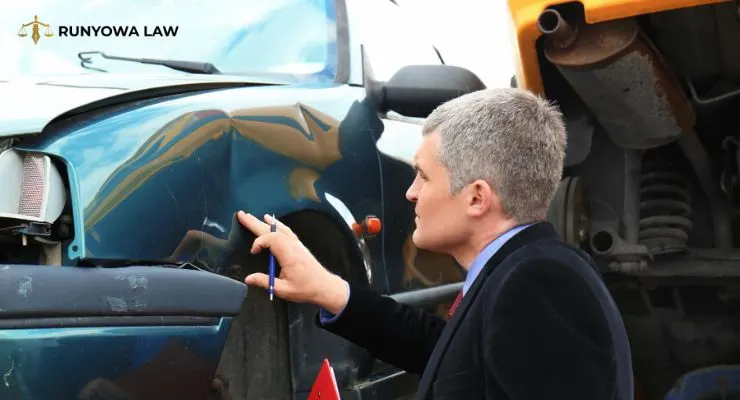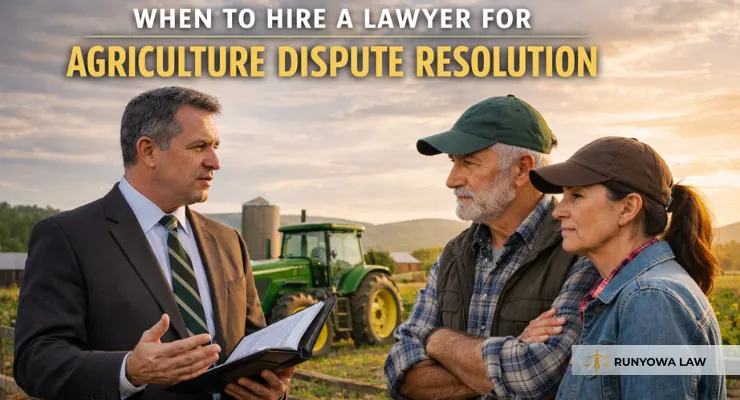If you or a loved one has been involved in a large-vehicle crash, hiring an experienced truck accident lawyer can make the difference between getting stuck with the lowball offer and walking away with full, fair compensation. A qualified attorney specializing in trucking cases — often called a commercial accident lawyer, truck injury lawyer, or truck wreck lawyer — understands the unique regulations, evidentiary needs, and insurer tactics that surround big-rig collisions. You’ll learn why these cases are different, what the attorney will do for you, how they maximize your recovery, and what questions you should ask when choosing among the best lawyers for truck accidents.
Introduction
When you search for a truck accident lawyer, you’re looking for more than just someone who knows personal injury law. Trucking crashes are a specialized beast: huge vehicles, commercial operators, complicated regulatory regimes, insurance policies with high limits, and aggressive defense teams. That means you shouldn’t rely on a general “accident lawyer” — you want someone who really understands trucks, carriers, and the stakes.
In this article I’ll walk you through how a skilled trucking lawyer can maximize your compensation, step by step. You’ll understand what makes these cases unique, what the lawyer will do (and why you should let them), how compensation is calculated, and how to pick the best lawyers for truck accidents so that your claim is handled with the expertise, experience, authoritativeness and trustworthiness it deserves.
Why Trucking Cases Are Different
Commercial complexity
When a car is involved in a crash, you mostly look at the driver’s negligence, the vehicle’s condition, and the other party’s insurance. But when you’re dealing with a crash involving a large truck or an 18-wheeler, the legal landscape broadens: the trucking company, the fleet owner, the driver, the maintenance records, the hours-of-service logs, the regulatory compliance (e.g., under the hours-of-service rules of a federal agency), the cargo load, the trucking insurer and potentially multiple layers of liability all come into play.
Higher stakes
Because commercial vehicles carry higher limits of liability insurance, and because the injuries tend to be more severe (due to size, mass, and speed differential), compensation potential is much higher — but so is resistance from defense teams and insurers. A truck wreck lawyer knows how to build a presentation and argument to tap into that potential.
Specialized evidence
Unlike a simple car crash, you’ll often need: black-box event data, long-haul tracking logs, maintenance and inspection records, cargo manifests, driver employment history, chain-of-command responsibility within the carrier company, and regulatory compliance documentation. Without a lawyer experienced in trucking accidents, you may overlook key pieces.
Multiple defendants
Trucking cases often involve multiple defendants: driver, carrier, lessor, maintenance company, cargo loader, even subcontractors. A trucking lawyer orchestrates how to bring them in, how to allocate fault, and how to ensure proper service of claims.
How a Truck Accident Lawyer Maximizes Your Compensation
Here are the major ways:
1. Early investigation
One of the first tasks your truck accident lawyer will do is secure the evidence before it disappears: the truck’s event data recorder, hours-of-service logs, maintenance records, witness statements, possibly video or sequencing of events, and site photographs. If the carrier is still operating, records may be modified or destroyed, so speed and legal pressure matter.
2. Identification of all responsible parties
A skilled commercial accident lawyer doesn’t just go after the truck driver. They’ll examine whether the carrier was negligent in hiring, training or supervising, whether the truck was maintained properly, whether the cargo was overloaded, whether the trailer was leased to an unfit operator — all of which can dramatically increase the leverage (and thus compensation) for you.
3. Building a realistic but aggressive value-range
Because truck cases have the potential for severe injuries, long-term disability, lost income, and large medical bills, your lawyer will work with medical experts, vocational rehabilitation specialists, and economists to estimate future losses. They’ll know what similar cases have settled for and how to position yours. Using this experience and expertise, they can push insurers harder and foresee defense tactics.
4. Negotiating with large insurers
Truck carriers usually have experienced defense teams and large insurers who know how to minimize payout. A truck injury lawyer with prior experience knows how to speak their language, how to anticipate common delay tactics, how to argue for full value rather than quick low offers, and how to rally strong documentation so that you aren’t forced to accept a sub-par deal.
5. Filing suit when needed and preparing trial-ready files
Not all cases settle easily. If your lawyer is truly one of the best for truck accidents, they’ll be ready to file a strong lawsuit and take the case to trial if needed. That demonstration of readiness strengthens your negotiating position, making the insurer realize they can’t simply lowball you. Preparing for trial often means better settlement outcomes.
6. Maximizing non-economic and future damages
In serious truck crashes you often have life-changing injuries: chronic pain, reduced life expectancy, permanent disability, psychological trauma. A truck accident lawyer knows how to document and present these non-economic damages — things like your loss of enjoyment of life, scarring, emotional trauma — to maximize your compensation.
7. Ensuring you don’t leave money on the table
Because trucking cases are complex, it’s easy for claimants (and even non-specialist lawyers) to overlook aspects like third-party liability (e.g., cargo loader or manufacturer), punitive damages if applicable, settlement structure (lump sum vs structured), future care costs, or subrogation issues (insurance reimbursement rights). A competent trucking lawyer guides you through all of these so you don’t leave money on the table.
What You Should Look For When Choosing the Best Lawyers for Truck Accidents
Experience & Expertise
- Have they handled truck (not just car) accident cases?
- Do they have a track record of dealing with large-vehicle carriers, commercial fleets, trucking regulation issues?
- Can they show case outcomes, especially in big truck collisions?
Authority & Trust
- Are they recognized by peers or have earned awards or certifications in trucking accident law?
- Do they publish articles, speak at conferences, or otherwise show themselves as authorities in trucking accident law?
- Are client reviews strong and consistent?
- Do they clearly disclose fees, process, and fight for transparency?
Good Communication and Engagement
- Do they explain the process clearly to you?
- Are they responsive? Someone dealing with major injury deserves that.
- Do they assign a team (investigator, paralegal, medical expert) so you feel supported rather than “just another case”?
Fee structure and resources
- Do they handle large truck accident cases on a contingency basis (you only pay if they recover)?
- Do they have the financial resources (expert witnesses, investigation budget) required for complex trucking cases?
Local knowledge & network
- Do they understand the local courts, jury perceptions, and trucking-industry players in your region?
- Do they know the state-or-provincial trucking regulation (for example in Canada or U.S. jurisdictions) that applies?
In short: you want someone who brings experience, expertise, authoritativeness and trustworthiness to your case — especially because a truck accident claim touches your life, your health and your finances.
Common Mistakes Claimants Make — and How a Good Trucking Lawyer Helps Avoid Them
1. Accepting early settlement offers
Often the carrier’s insurer will try a quick “take-this-and-go-home” offer before you’ve fully documented your injuries or discovered every party liable. A smart truck accident lawyer will advise you not to sign anything until you understand the full extent of your damages.
2. Neglecting future care costs or permanent impairment
Imagine you’ve been rear-ended by a fully loaded semi-truck, you have back injuries now and the doctor warns you’ll need surgery in future. If you settle now without factoring that in, you’ll pay later. A truck injury lawyer will bring in life-care planners and medical experts to quantify future costs.
3. Overlooking non-economic damages
Pain, suffering, emotional trauma — these are non-economic but very real. Without a specialist approach, these may get short-changed. Truck wreck lawyers know how to build these arguments.
4. Not investigating all responsible parties
Maybe the carrier subcontracted a driver, maybe maintenance was outsourced, maybe the cargo was overloaded. If you don’t dig deep, you may miss out on additional insurance coverage. A trucking lawyer investigates.
5. Going it alone or choosing a generalist lawyer
Trucking accident cases are not like the typical fender-bender. You need someone who knows the regulatory landscape and has faced the defense teams used by carriers. That’s why choosing one of the trucking lawyers or a dedicated commercial accident lawyer pays.
How Compensation Is Typically Calculated — and How a Skilled Lawyer Improves the Outcome
Let’s break down the kinds of compensation you might receive, and how a skilled truck accident lawyer can positively influence each component:
1. Economic Damages
These are measurable losses: past medical bills, future medical expenses, lost wages, loss of future earning capacity, rehabilitation costs.
- How the lawyer helps: They’ll gather medical records, work with economists/vocational experts to project future lost income, and ensure nothing is omitted.
2. Non-Economic Damages
These include pain and suffering, emotional distress, loss of enjoyment of life, scarring/disfigurement, or loss of consortium.
- How the lawyer helps: They’ll present evidence (medical testimony, psychological evaluations, your own testimony) so that the jury or insurer understands the real impact of your injury, and they’ll craft narratives and use comparables from past trucking cases.
3. Punitive or Exemplary Damages
In some jurisdictions, if the carrier’s conduct was egregious (reckless maintenance, knowingly violated hours-of-service rules, overloaded the truck), the award might include punitive damages.
- How the lawyer helps: They’ll investigate carrier behavior, check violation history and safety records, and argue for higher damages when warranted.
4. Structured Settlements and Payment Terms
Sometimes it’s not just how much you get, but how you receive it (lump sum vs periodic payments).
- How the lawyer helps: They’ll advise you on tax implications, inflation adjustments, and future needs so that your settlement really supports you long term.
5. Maximizing Insurance Coverage
Carrier policies often have higher limits, there may be umbrella coverage, trailer lessors insurance, cargo insurance. A skilled trucking lawyer knows how to identify and tap into all applicable coverage.
- How the lawyer helps: They’ll perform insurance-layer reviews, name all potential carriers, and push insurers to disclose limits and pursue full recovery.
By being proactive, thorough, and strategic, a truck accident lawyer improves every one of these damage categories — increasing your compensation potential significantly compared to someone going alone or represented by a non-specialist.
Real-Life Example
Imagine you’re a delivery-truck driver who is hit by a tractor-trailer that runs a red light. You sustain a fractured pelvis, multiple surgeries, months of rehab, permanent limp, chronic pain, and you’ll earn 30 % less for the rest of your working life because you can no longer drive heavy equipment.
A competent truck accident lawyer would:
- Secure the truck’s EDR (event data recorder) to establish speed and braking.
- Obtain the trucking company’s hours-of-service logs to examine fatigue.
- Inspect the truck’s maintenance and inspection records to identify any carrier negligence.
- Bring in medical and vocational experts to project your future earning capacity loss.
- Negotiate with the carrier’s large insurer — not just at a low figure but at realistic full value for your lost future income, your permanent impairment, your pain and suffering and your loss of quality of life.
- If necessary, file suit and litigate to maximize settlement.
The result: instead of accepting a quick, modest settlement, you walk away with a full compensation package that addresses not just what’s happened so far, but what you’ll need going forward. That’s how skilled representation makes a real difference.
When Should You Contact a Truck Accident Lawyer?
As soon as possible. The sooner you bring in a professional, the quicker they can: preserve evidence (which tends to degrade or disappear), interview witnesses, lock in liability issues, and build your claim from the ground up. Waiting can weaken your position dramatically.
Also, keep in mind statute of limitations (the legal deadline you must file your case) varies by jurisdiction — failing to act in time can cost you the right to recovery.
Questions to Ask Your Potential Trucking Lawyer
When you interview a few candidates, here are questions you should ask:
- How many trucking-accident cases have you handled in the last 12 months?
- What is the largest truck collision settlement or verdict your firm has obtained?
- Do you have a team that handles investigation (experts, accident reconstruction, EDR data)?
- How will you keep me informed about progress and decisions?
- What is your fee structure — and what costs am I responsible for?
- Are you prepared to take this to trial if the insurer won’t offer a fair settlement?
- Will you identify and pursue all responsible parties (driver, carrier, maintenance, loader, cargo company)?
- Will you provide references or client testimonials from truck-crash cases?
Good answers to these questions help ensure you’re working with someone who meets the criteria of the best lawyers for truck accidents.
Why Your Choice of Lawyer Makes Such a Big Difference
You might be thinking: “My injury isn’t that massive, maybe a regular accident lawyer will do.” But here’s why that can cost you:
- A non-specialist may miss regulatory issues (such as hours-of-service violations or carrier safety history) that can force the carrier to settle higher.
- They may underestimate future costs of a severe injury (leading to less compensation).
- They may accept the first settlement rather than exploring layered insurance or multiple defendants.
- They may inadequately prepare for trial, which weakens your bargaining power.
- They may not communicate clearly about your rights, options, or actions, leaving you feeling helpless.
By contrast, an experienced truck accident lawyer brings a deeper toolkit, stronger leverage, and greater ability to maximize your compensation so that you’re not settling for less than you deserve.
Final Thoughts
A crash involving a big commercial truck can upend your life in a way that reaches far beyond the immediate medical bills. The physical, financial, and emotional fallout can be enormous. That means your choice of representation matters — not just any lawyer, but a truck accident lawyer who understands the complex world of trucking collisions, who brings a full team, and who fights for full value.
When you engage someone who treats your case with the seriousness it deserves — investigating every angle, anticipating defense tactics, calculating future losses, negotiating aggressively or going to trial if needed — you go into the process with strength, rather than uncertainty.
If you’re in this position, take the time to find a true trucking-accident specialist: one of the trucking lawyers or a dedicated commercial accident lawyer or truck injury lawyer. Don’t settle for “good enough” when you deserve maximization of your compensation.
Remember: you’re not only seeking recompense for what’s happened — you’re seeking to protect your future, your recovery, and your quality of life. A skilled truck wreck lawyer doesn’t just handle paperwork — they partner with you to build a future that isn’t defined by the crash.
FAQs
Q: What distinguishes a “truck accident lawyer” from a regular personal-injury lawyer?
A truck accident lawyer specializes in collisions involving large commercial vehicles (e.g., tractor-trailers, big rigs). They understand trucking regulations, carrier liability issues, large-vehicle mechanics, multiple parties, and high-limit insurance. A regular personal-injury lawyer may know general negligence law, but might lack the specialized knowledge and experience that maximize outcomes in these heavy-vehicle cases.
Q: How much can a commercial accident lawyer increase my compensation?
While outcomes vary widely depending on facts, injuries, liability and jurisdiction, a lawyer experienced in trucking cases often uncovers additional sources of recovery (such as secondary parties or layered insurance) and argues for full future damages. That can translate into significantly higher compensation compared to accepting an early low offer — not an arbitrary figure, but a meaningful improvement. The key is their ability to build the case, negotiate or litigate effectively, and tap into all potential damages.
Q: How soon should I contact a truck wreck lawyer after a crash?
As soon as possible. Early steps like preserving evidence (EDR data, logs, maintenance records), identifying witnesses, and investigating the carrier’s record are time-sensitive. Delay can weaken your position and reduce ability to maximize compensation. Also, statute of limitations may apply.
Q: Will hiring a truck injury lawyer cost me upfront?
Most experienced truck accident lawyers work on a contingency fee basis — you pay no upfront fees and only pay if they recover compensation for you. It’s still wise to ask about what costs (expert witnesses, investigation) you might be responsible for if the case proceeds and how those are handled.
Q: What should I do while the lawyer builds my case?
You can help maximize your outcome by:
- Seeking prompt and consistent medical care, and following your doctor’s instructions.
- Keeping detailed records of your injury, symptoms, treatment, expenses, and how your life is impacted.
- Avoiding giving recorded statements to insurers without your lawyer’s consent.
- Not signing any settlement or release without your attorney’s review.
Providing your lawyer with any documentation you have (employment records, wage loss, vehicle damage, etc.).
Your cooperation ensures the attorney can build the strongest possible claim on your behalf.




